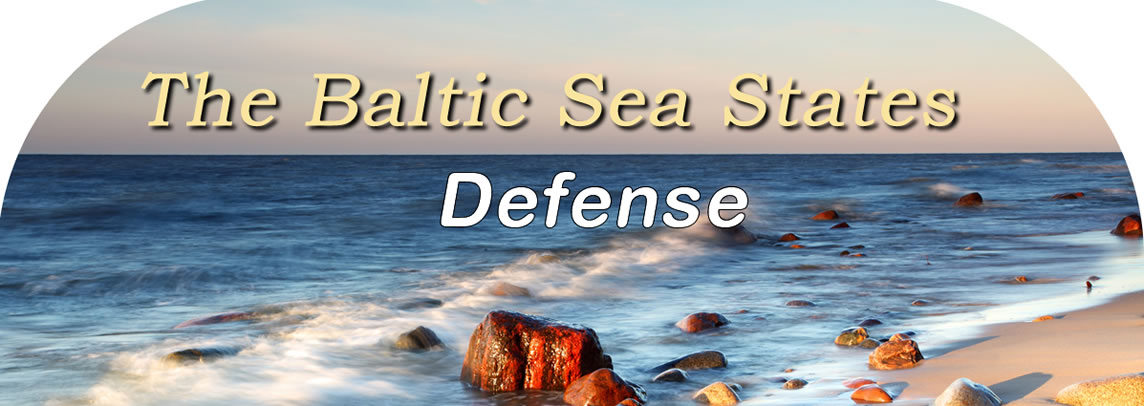
Norwegian Defense
The Kingdom of Norway is considered one of the most affluent and
highly developed countries in the world. Much of this is thanks
to its abundance of natural resources and human capital
investments, like health care and education. The nation of
Norway has existed relatively in peace for much of its history,
however, its unique geopolitical location has resulted in the
use of several defence policies over the last century.
On a contemporary level, Norway is a prominent member of the
United Nations, NATO, where the country has sent its soldiers to
fight various humanitarian crises (Kosovo, Sudan) and military
operations from prominent powers (United States war on
Afghanistan). This cosmopolitan spirit is fairly recent in
Norway's history. When World War I broke out, Norway was a
steadfast neutral nation. After WWI, Norway became dominated
with pacifist and isolationist voices, allowing the country to
remain neutral even as fascism rose across Europe. However, the
more Nazi Germany began annexing, the more Norwegian politicians
and the monarchy became worried about the nation's sovereignty.
After decades of fiscal austerity, the country began to quickly
build up its military as both the United Kingdom and Nazi
Germany battled each other across Europe and Norwegian maritime
territory. The closer relations Norway began with the United
Kingdom during their quick military investments led to Nazi
Germany to invade and subsequently occupy the country. Nazi
Germany also believed the unique resources and access to the
Arctic Ocean could provide it with a military advantage over the
Allies. Much of the Norwegian military fled with the Parliament
and monarchy to the UK and other Allied territories while other
forces helped with the underground resistance movement in the
country.
Norway was occupied by Nazi Germany into the last days of the
war. Even after Hitler's suicide, the Allies had to communicate
with the Nazi occupation government up until May 8th, 1945. On
June 7th, 1945, the monarchy and Parliament members returned to
Oslo. The occupation, policies by the Nazi government, and
battles in Norway, much of which led to scorched earth fields,
shocked the national psyche of Norway. As a culture, Norway
became far more liberal with its social insurance policies, like
health care and education, but it also became more proactive in
global affairs. The nation enthusiastically joined NATO and the
political parties of Norway no longer espoused
neutrality/isolationist rhetoric. Norway also consistently
invested in its civilian military, even in times of peace.
Fearing war could happen anytime and hit the country, Norwegians
in the WWII generation up to contemporary times establish proper
funding into their military for defensive purposes.
Today, Norway's military has about 26,000 active personnel out
of a country of around 5 million. The military includes an army,
navy, and air force, but it also consists of the Home Guard,
which has highly trained professionals for civil support, and
the Cyber Force, which is devoted to national cyber-security.
Although the country actively joins many international
organizations with military powers (the UN, NATO), Norway is
known for its third party mediation of international conflicts.
For example, the Oslo Accords were commissioned to broker a
peace deal between Israel and the Palestinian Liberation
Organization.
Nevertheless, Norway has used its military strength to defend
causes and its unique geopolitical location. Human rights
issues, such as genocides in Bosnia and the Sudan, led Norway to
participate with the United Nations and/or NATO on those
specific campaigns. Norway's membership to NATO has made Norway
an ally in the United States' War on Terror and Norway's
investments in cyber defenses shows its seriousness to combat
cyber crimes and terrorism from groups or countries like the
People's Republic of China. Finally, Norway's location in the
Arctic Ocean has made the country aggressive and defensive over
its maritime territory, especially as the Arctic Circle begins
to melt from climate change. As the country takes a
pro-environmental stand to advocate for policies to stop climate
change and protect the habitats of its citizens and indigenous
peoples in the north, Norway also makes sure that commercial and
other nation's, such as Russia, do not exploit new openings near
the Arctic Circle to move into Norway sovereignty.

© Baltic21.org
2013, All Rights Reserved
|

